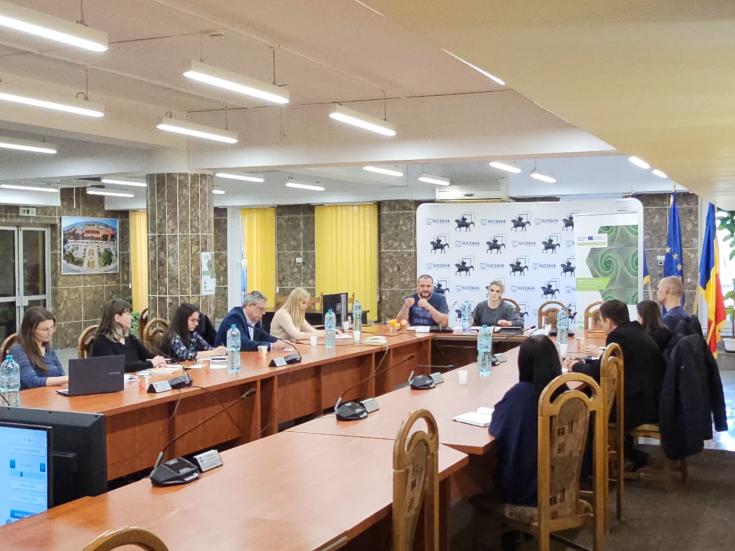Local stakeholder meeting in Suceava (Mar. 2024)
Suceava’s second local stakeholder meeting took place on the 29th of March 2024. Its aim was to address the municipality’s current situation regarding circular economy, but also to give the stakeholders an opportunity to share some ideas and suggestions on how to best implement the KARMA project at the municipal level.
A second meeting between Suceava Municipality and its stakeholders
On the 29th of March 2024, the second meeting with the local working group was organised at the headquarters of Suceava City Hall. Among the participants were members of the project implementation team, as well as representatives of the Romanian Architects' Order - North-East Territorial Branch, "Ștefan cel Mare" University Suceava and construction companies.
The members of the working group were informed about the submission of the Climate City Contract within the Horizon Europe Programme, Mission "Smart and Climate Neutral Cities" - 100 Climate Neutral Cities by 2030 and the content of the strategic document. The Climate Contract can be seen as an update of the Sustainable Energy and Climate Action Plan of the Municipality of Suceava 2021- 2030 (SECAP), the policy instrument of the project KARMA.
A chance for the stakeholders to share insightful suggestions
The final part of the meeting allowed participants to discuss and make suggestions and proposals for the best way to implement the project. One of the proposals made by the OAR (Architects' Order of Romania) representatives was to grant tax incentives to construction companies and citizens who contribute to reducing carbon emissions and increasing energy efficiency by recycling building materials. Encouraging the recycling of construction materials, can reduce the pressure on natural resources and help to mitigate the negative impact on the environment. Recycling can also create employment opportunities in the recycling industry and support the development of a circular economy sector. It is important that these incentives are implemented properly and form part of a broader framework of policies and initiatives aimed at addressing the challenges of climate change and promoting sustainability in the construction sector.
Another proposal was the introduction of innovative methods for the design of new buildings in particular the design of buildings with a digital footprint using Building Information Modelling (BIM). This is an intelligent workflow based on a 3D model, that provides Architecture, Engineering and Construction (AEC) with the tools they need to plan design, construct and operate buildings efficiently and transparently.
At the end of the meeting, the members of the local group were able to conclude that good practices in circular economy within the construction sector stem from effective collaboration between different stakeholders, to promote and implement circular economy practices in the construction sector.
Author: Irina (Suceava municipality)
